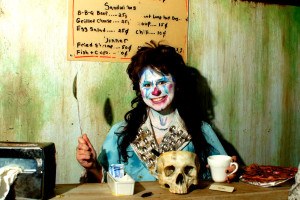Checking in with Colson Whitehead at the Boston Book Festival

Photo by Madeline Whitehead
As a child, Colson Whitehead believed that the Underground Railroad was a real “subway beneath the earth.” In his new novel, The Underground Railroad, he uses this notion to reimagine a female slave’s journey to freedom.
Yesterday, as part of Boston Book Festival’s fiction keynote session, Whitehead sat down with Saeed Jones, executive editor for culture at Buzzfeed, to discuss his highly acclaimed novel, which is featured in Oprah’s Book Club.
Whitehead first had the story idea sixteen years ago, but he needed time to ensure he was ready to take on the project. “I’d write a note maybe once a year like, ‘white supremacist state?’” he said.
Eventually, he started pitching the story to anyone who would listen—his wife, his editor, his agent. “Wednesday was shrink day,” said Whitehead, “so I told my shrink about it, and she said, ‘What are you, crazy?’”
At last, he asked his publisher, who told him to “giddy up, mofo,” which Whitehead said is publishing speak for “get to work.”
So he settled into his office, or “hell pit,” and began piecing things together. Whitehead conducted extensive research to be able to honor people like his great, great grandparents who lived and died on Southern plantations. But he distinguished his work from the historical novel in order to play with reality and foster a larger discussion about the demonization of the other.
The novel’s female protagonist, Cora, allowed him to explore the unique experiences and often overshadowed narratives of women. While readers were quick to question his authority over the female voice, he assured them that this challenge is a necessary part of his work.
“I think it’s your job to attack the world,” said Whitehead. “If you fail, you should be called out on it, and you should be adult enough to realize that maybe you shouldn’t have used that voice.”
Ultimately, Whitehead hopes that his book will challenge readers of all backgrounds.
For the time being, he is not working on anything new, but enjoying the praise his book has garnered. “I think about death or Donald Trump,” he said, “and I’m like, ‘that’s terrible…Oh, well.’”


